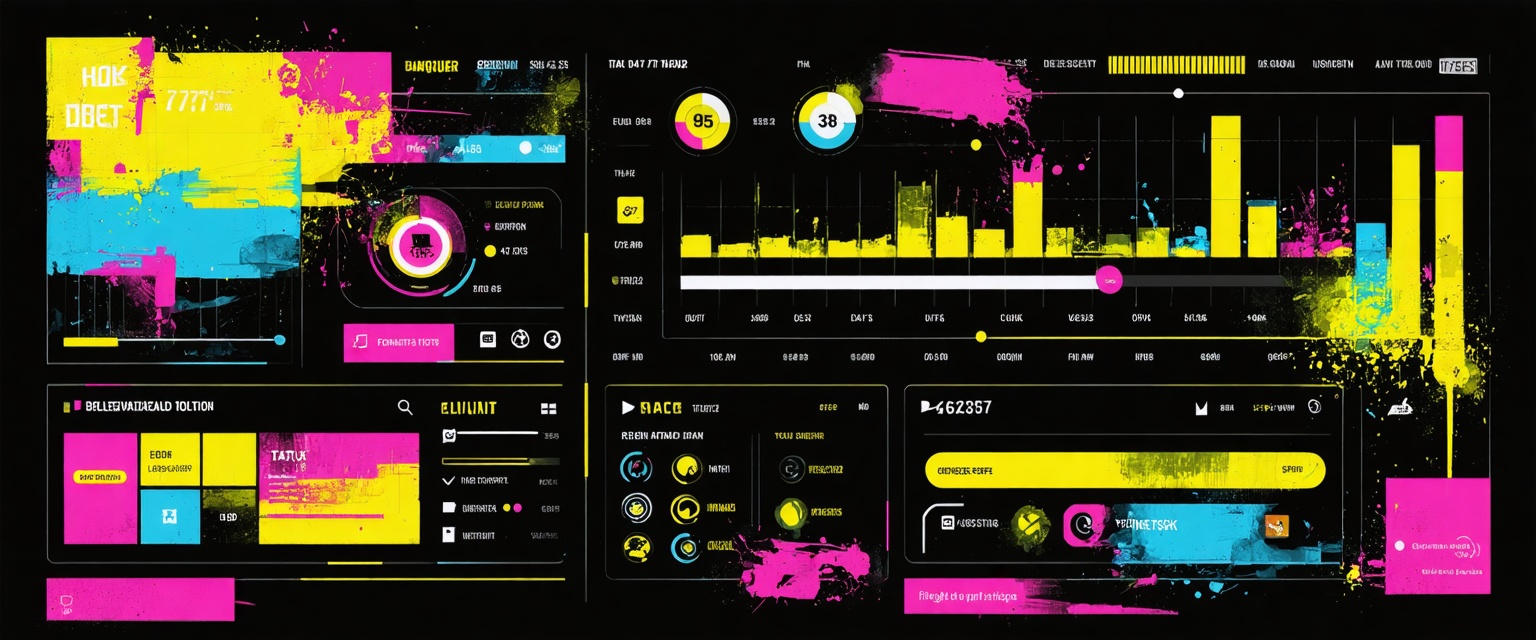Discover how AI agents automate success plan documentation for Customer Success Managers, saving time and enhancing productivity. Transform your customer relationships today.
Customer Success Managers face the challenge of managing excessive documentation, often bogged down by manual data entry and disconnected tools. These tasks take time away from nurturing customer relationships, hindering the value CSMs can deliver.
Thanks to advancements in Agentic AI, automating success plan documentation eliminates time-consuming tasks, allowing CMS to focus on delivering greater value to customers. Datagrid’s AI agents handle routine documentation, allowing CSMs to focus on what matters most, driving customer success.
This article examines how AI agents automate success plan documentation for CSMs.
Understanding Success Plan Document Components for CMS
A success plan acts as both a roadmap and communication tool between you and your clients. It maps out customer goals, milestones, metrics, and action items.
The best success plans include:
- Customer Goals: Clear objectives tied to business outcomes
- Key Milestones: Specific achievements marking progress
- Success Metrics: Measurable indicators showing value
- Action Items: Specific tasks for both parties
- Timeline: Schedule for achieving milestones
- Stakeholders: Key contacts responsible for execution
Success plans must breathe and grow with your customers, not gather dust in a forgotten folder.
While approaches differ between companies, proven frameworks like SMART goal-setting, value realization, and adoption maturity models offer solid foundations.
How Success Plan Documentation Helps CMS Drive Results
Success plans aren't just paperwork, they're strategic tools that directly impact your results.
Facilitating Alignment and Accountability
Automated success plan documentation ensures everyone shares the same understanding about goals, milestones, and metrics. This clarity creates accountability and sets expectations, preventing misunderstandings that derail progress.
When all stakeholders work from the same plan, expectations stay aligned throughout the customer journey. This reduces friction and builds trust between your team and the client.
Tracking Progress and Demonstrating Value
Success plans give you a central dashboard for tracking KPIs and milestones, so you can:
- Quickly check customer health
- Spot trouble areas
- Show concrete progress to stakeholders
By documenting wins and connecting them to success criteria, you build a compelling case for renewal. This evidence-based approach makes conversations around contract extensions much more productive.
Driving Key Performance Indicators
Strong documentation directly boosts critical CS metrics:
- Net Promoter Score (NPS): By aligning actions with customer goals
- Customer Satisfaction (CSAT): Through relevant efforts based on documented plans
- Time to Value (TTV): With clear onboarding processes and early wins
- Net Retention Rate (NRR): By delivering value tied to customer objectives
Success plans also serve as collaboration hubs between Customer Success Managers, customers, and internal teams while supporting proactive customer management.
Manual Tasks That Slow Down Success Plan Documentation
Manual success plan documentation can become a massive time sink for Customer Success Managers:
Collecting Data from Disconnected Tools
CSMs pull information from emails, CRMs, support tickets, and usage dashboards. This disjointed process often requires switching between multiple platforms and manually copying information.
The fragmentation leads to incomplete data collection and makes it difficult to maintain a holistic view of customer health. CSMs often miss critical signals because information is spread across too many places.
Manually Updating Goals, Milestones, and Tasks
Keeping plans current with changing action items, deadlines, and deliverables demands constant attention, especially across shared documents.
Every adjustment to timelines or deliverables requires manual updates across multiple sections of documentation. This tedious work often gets delayed, leading to outdated plans that don't reflect current priorities.
Tracking Customer Feedback Across Channels
Client feedback scattered across emails, calls, chats, and surveys requires extensive tracking. This creates challenges in consolidating insights and prioritizing action items.
When feedback isn't properly integrated into success plans, customer concerns may go unaddressed. The manual effort to track and organize this feedback takes time away from actually implementing solutions.
Aligning Internal and External Stakeholders
CSMs spend extra time clarifying goals, sharing progress, and confirming alignment across departments and with clients. This coordination often happens in meetings or email chains that kill momentum.
The back-and-forth communication to ensure everyone understands the plan creates delays and frustration. Manual alignment processes make it difficult to respond quickly to changing customer priorities.
Keeping Documentation Current Amid Changing Needs
Evolving customer needs or product updates quickly make plans obsolete. Teams must constantly revise content, something that rarely happens fast enough with manual methods.
When plans become outdated, they lose their value as strategic tools. The effort required to overhaul documentation means many CSMs end up working from memory rather than updated plans.
These time drains hurt both CSM efficiency and customer satisfaction. When Customer Success Managers get buried in admin work, they can't focus on the strategic activities that drive customer value.
How AI Agents Automate Success Plan Documentation
AI agents remake success plan documentation by automating the most tedious parts for Customer Success Managers. Understanding the different AI agent types can help leverage these tools effectively.
Extracting Key Data from Calls, Emails, and Usage Logs
AI pulls relevant insights from customer conversations and product usage, no more hunting through emails, transcripts, or dashboards.
These systems analyze conversations to extract action items and customer sentiments while processing usage data to spot adoption patterns and improvement areas. By optimizing data with AI, the technology can identify priorities, timelines, and commitments from various communication channels without manual intervention.
Generating Draft Plans Based on Customer Profiles
AI uses customer history, goals, and engagement patterns to create tailored draft success plans. This gives you a head start by:
- Using past data to suggest appropriate templates
- Including industry benchmarks in plan structures
- Suggesting relevant goals and KPIs based on similar customers
The AI can assemble initial documentation frameworks that align with your company's success methodologies while adapting to specific customer characteristics and objectives.
Recommending Next Steps with Intelligent Suggestions
AI examines current progress to suggest updates, flag gaps, or recommend next actions. This keeps plans in sync with customer needs by:
- Spotting risks based on changing customer behavior
- Suggesting updates when goals shift
- Recommending resources based on the customer's journey stage
These intelligent recommendations help CSMs prioritize their focus areas and take proactive steps before issues escalate. The system continuously analyzes data patterns to identify opportunities for intervention.
Automating Follow-Up Reminders and Task Notifications
AI sends timely prompts for upcoming check-ins, action items, or needed responses, keeping teams on track without manual to-do lists.
These notifications prioritize tasks based on urgency and impact, making sure nothing important slips through. AI automation not only sends timely reminders but can also automate document processing, ensuring consistent follow-through on commitments and reducing manual workload. It even can boost email personalization to enhance customer engagement.
Keeping Documentation Continuously Aligned
AI's biggest value might be keeping success plans dynamic, automatically updating goals, milestones, and metrics as customer behavior shifts. This helps to streamline CRM with AI, ensuring you always have the most current and useful information.
The system can detect when documented plans diverge from actual customer activities and flag areas needing review. This continuous alignment ensures that success plans remain living documents rather than outdated artifacts.
AI for customer success allows agents to focus on what truly matters: building relationships. By automating routine tasks, AI frees you to handle complex situations requiring human empathy and strategic thinking.
Datagrid for Sales Professionals
Customer Success Managers juggle client information, success plan documentation, and feedback across multiple systems. Datagrid's AI-powered platform offers specialized solutions to streamline your workflows:
Lead Intelligence Enhancement
Process thousands of prospect interactions, company data points, and market signals simultaneously to identify high-potential opportunities and optimal engagement timing.
This capability helps CSMs prioritize accounts based on propensity for growth or risk of churn. The AI analyzes patterns across customer interactions to surface accounts requiring immediate attention or representing expansion opportunities.
Sales Document Automation
Extract critical information from RFPs, proposals, and contracts to generate customized sales materials that address specific client needs without starting from scratch.
For CSMs, this means faster creation of success plans and QBRs by automatically incorporating relevant customer commitments, objectives, and timelines from existing documentation. This ensures consistency between sales promises and customer success delivery.
Competitive Win/Loss Analysis
Deploy AI agents to analyze won and lost deals across your CRM, identifying patterns in decision criteria, objection types, and competitive positioning that influence closing rates.
This analysis helps CSMs understand what drives customer satisfaction and renewal decisions. By identifying common success factors, teams can replicate winning approaches across their customer base.
Client Communication Intelligence
Automatically analyze email exchanges, meeting notes, and call transcripts to identify buying signals, stakeholder sentiments, and potential roadblocks requiring attention.
The system tracks communication patterns to surface emerging customer needs, potential friction points, and sentiment shifts that might impact renewals. This intelligence helps CSMs stay ahead of issues before they escalate.
Pipeline Health Monitoring
Process historical deal data to predict close probabilities more accurately, identify stalled opportunities, and recommend specific actions to advance stagnant deals.
For customer success, this capability translates to monitoring renewal pipelines, identifying at-risk accounts, and suggesting targeted interventions to improve retention rates.
Account Expansion Opportunities
Analyze existing customer documentation, usage patterns, and industry benchmarks to identify upsell and cross-sell opportunities within your current client base.
The AI identifies patterns of feature adoption that typically precede expansion, helping CSMs time their growth conversations appropriately. It also suggests specific product capabilities that align with the customer's evolving needs.
Territory and Market Planning
Process regional sales data, account potential, and competitive presence across your territories to optimize sales coverage and resource allocation.
For customer success teams, this helps balance CSM workloads, identify territory-specific challenges, and develop regional success strategies aligned with market conditions.
Simplify Customer Success Tasks with Datagrid's Agentic AI
Don't let data complexity slow down your team. Datagrid's AI-powered platform is designed specifically for teams who want to:
- Automate tedious data tasks
- Reduce manual processing time
- Gain actionable insights instantly
- Improve team productivity
See how Datagrid can help you increase process efficiency.













